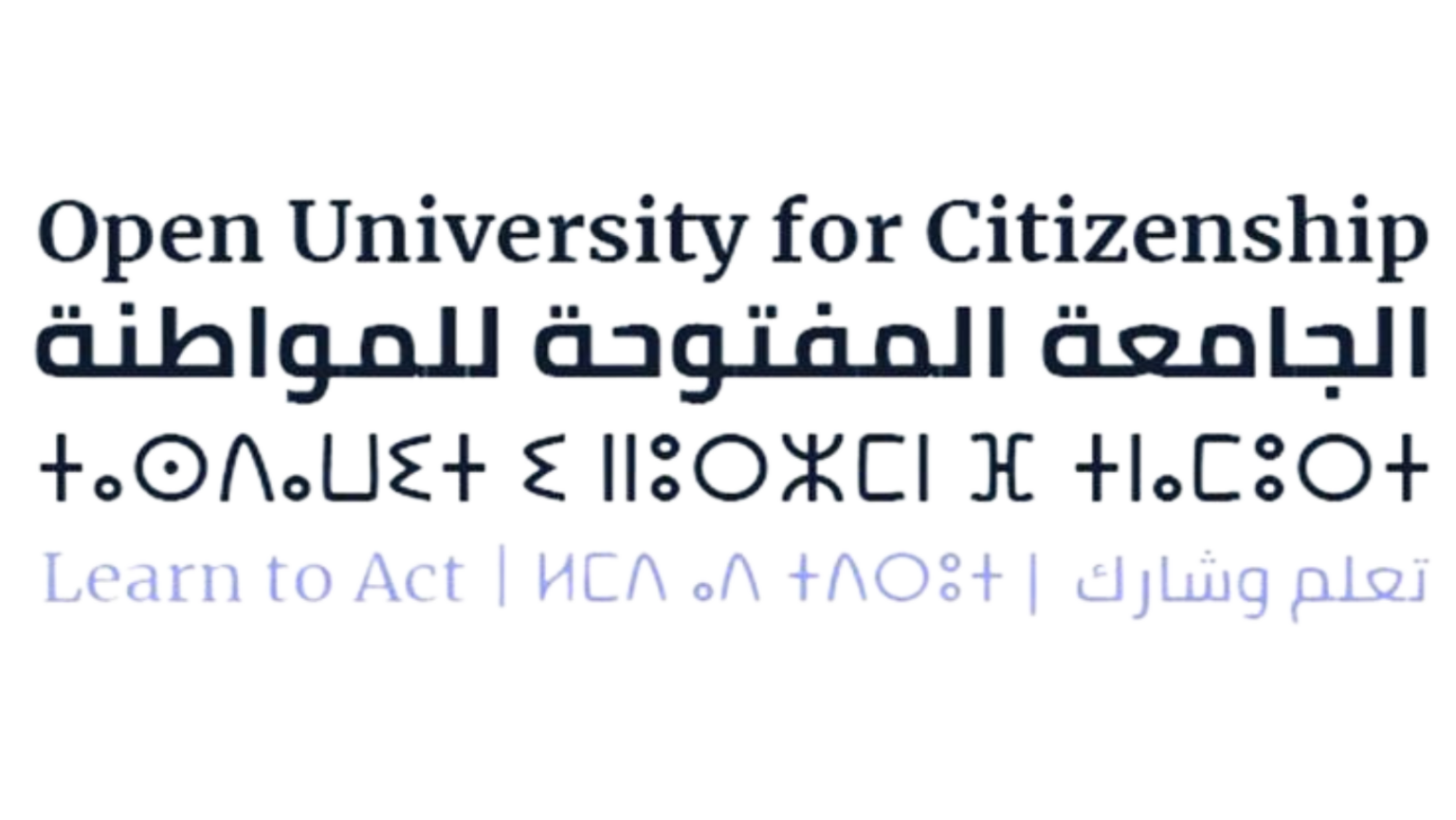
Within the framework of the Open University for Citizenship project, the Moroccan Institute for Policy Analysis (MIPA), in partnership with the United States Agency for International Development (USAID), organized the second Forum on Inclusive Citizenship Education. The opening session was marked by Mr. Juan Carlos Rodriguez, Representative of the United States Agency for International Development (USAID), expressing USAID’s enthusiasm to partner with the Moroccan Institute for Policy Analysis (MIPA) and to develop a more participatory system at the local, regional or national level in Morocco.
Mr. Rodriguez expressed the depth of the partnership between Morocco and the United States of America, which reflects common goals and values, and then congratulated the Moroccan Institute for Policy Analysis for its innovative approach and energy in the “Open University for Citizenship” project, as well as its implementing partners, and also mentioned that this forum came in Special timing given that it was organized just two weeks before Morocco hosts the Open Government Regional Summit in Marrakech, where it will discuss the concepts of open government, anti-corruption, digital innovation, access to justice and civic participation, to conclude his speech that civil society needs partners such as MIPA and civil society organizations And representatives of the Moroccan government to cooperate in this matter.
Mr. Mohamed Mesbah, President of the Moroccan Institute for Policy Analysis, started his speech by pointing out that the “Open University for Citizenship” project comes as a culmination of the Institute’s path in the process of capacity-building and strengthening trust between citizens and decision-makers. The “Trust Index” report issued by the Institute confirmed the lack of confidence in political institutions compared to non-elected institutions. Among the reasons for the lack of confidence in political institutions is the weakness in the level of “citizenship education”. He said that the “Open University for Citizenship” project aims to enhance the capabilities of marginalized groups of citizens, especially youth, women and people with disabilities, and strengthen their skills and raise their interest in issues of public affairs, and thus their involvement for effective and comprehensive citizenship participation.
Mr. Ibrahim Aghlan, representative of the Moroccan National Library, thanked all the partners involved in this project. He also expressed that the National Library believes that citizenship education is necessary and important among all citizens throughout Morocco, and reading and research is considered one of the entry points in the field of citizenship education now as well as in the future.
Mr. Abd al-Razzaq al-Jubari – President of the Moroccan Judges Club went on to say in the same context that these projects are very important and that the aim of this project is to increase civic education, which is important in every society and necessary to build on the gains made by our country since the adoption of the constitution in 2011, and for this reason the The objectives of a project like this are of great importance to government institutions. Representatives of the beneficiary associations also thanked the organizers of the project and expressed confidence in the Moroccan Institute for Policy Analysis (MIPA), and the success that is represented in raising awareness of citizenship among the beneficiaries of the project as well as providing testimonies and recommendations that are summarized in targeting youth participation and bring them to the centers in order to participate and receive the trainings offered by the project and look forward to future focus groups and the steering committee.
In his intervention during the opening session, Mr. Mahdi Harmoush, Director of the “Open University for Citizenship” project, presented the results of the first year of implementing the project in 10 regions and 30 cities. Mr. Harmoush also presented the electronic platform of the project and videos documenting the most important activities and workshops organized by the project managers for the benefit of young people. in different regions.
In the evening, the second session was an opportunity to discuss the problems and challenges facing the citizenship education process in Morocco and the recommendations and good practices among civil society organizations; It dealt with many issues such as the role of the various activities of local civil society organizations and institutions, the development of education on citizenship and the relationship between society and institutions, especially with academic institutions, and in defining the role of the university and the responsibility of the government, etc.,
Professor Somaya Boutkhel, Professor of English Studies and Gender Studies at Mohammed I University in Oujda, spoke about the relationship between citizens and institutions, especially with academic institutions, and also about the role of the university, which, in her view, did not live up to the level of its role in society. She said that we need to rethink the problems of higher education that are reflected in the student’s personal skills level.
The interventions of the participants in this session dealt with the difficulty of bringing about change “from above”, stressing the need to build from the local level and then expand more and more slowly; Within the framework of inclusiveness, integration and discussion between various civil society organizations and local communities.
The discussion concluded with the formulation of a number of recommendations, which we include as follows:
- Building citizen critical thinking;
- Every individual and organization has a responsibility to make a positive difference in our society;
- Develop clear short and long term action plans;
- Set a specific goal and work towards it instead of accepting all the problems and initiatives.
- Working on studying the prevailing social representations about citizenship education, and trying to formulate solutions to address the negative ones;
Before ending the work of the forum, the Moroccan Institute for Policy Analysis renewed the agreement with its institutional and civil partners, to continue coordination and consultation, in a bilateral framework or within the structures of the Open University for Citizenship project, with the aim of completing the implementation of the programs and activities of the project, in order to achieve the major goals of this civil initiative.



